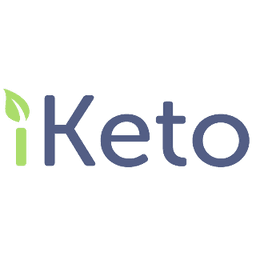How Iketo.diet Was Built, Automated, and Acquired for $140K in 2 Years

Business Description
Table of Contents
Navigate through the case study sections
Executive Summary
Case Study Content
A $140K Exit: Inside Iketo.diet’s Fast-Growth Playbook
Iketo.diet’s journey is a modern SaaS roller coaster, light on staff, heavy on automation, and relentless in execution. In two short years, it scaled from concept to sale, nailing high retention, sizable recurring revenue, and a fiercely loyal email list. Here’s the real talk on how it worked, what drove its 15% monthly growth, and what actually worked for customer expansion and profitability in the data-driven health sector.
Problem: Fragmented, Generic Online Nutrition Solutions
Two years ago, the web bristled with calorie calculators and copycat meal plans, but real personalization for everyday users? Pretty scarce. Customers wanted meaningful, tailored guidance, not one-size-fits-all PDFs or forum advice. Iketo.diet’s founder, working out of Miami, saw this firsthand coaching clients and watching them drop off paid programs once the novelty wore off. Churn was the enemy. The mission: build a system that could serve thousands with little hands-on effort, achieved through smart tech and behavioral nudges.
Building: Nutrition Intelligence Delivered at Scale
Iketo.diet’s major advantage was machine-driven customization. Every new user filled out a detailed intake, gender, weight, age, dietary preferences, goals. Once submitted, AI generated a dynamic meal plan, recipes, a printable grocery list, and, crucially, ongoing feedback through a weight-loss tracker. This automation turned what is usually a coach’s manual workload into pure code.
- 100% digital delivery – No manual onboarding, no physical products
- Flexible, cancellable subscriptions (1, 3, 6 months)
- Upsell pipeline through additional plans and renewal offers
- Grocery list downloading and progress tracking for hooks
Market: Massive Appetite for Results, Fast
The digital wellness market is projected to hit $77B+ by 2026. Iketo.diet’s target demographic ranges from busy parents to weight-lifting hobbyists, all united by a willingness to experiment online and pay for structured guidance. The platform promised an average 3.5 pounds weekly loss for those who followed the program, a rate that’s clear, simple, and easy to sell. Supported by a 50K-strong email list and more than 100 affiliate partners, the company had reach far beyond its modest in-house resources.
Monetization: Recurring Revenue With High Margins
Iketo.diet lived off subscriptions: customers paid monthly, quarterly, or semi-annually, with discounts for extended commitments. Upsells (like premium support or extra plan variants) padded basket size. Revenue didn’t just come from new signups, rebilling of happy customers kept the engine turning, and monthly recurring revenue hit $7,500+ in late 2021. Media buys (including Facebook and display ads) brought in most new leads, but referral programs and aggressive cold email kept the top of the funnel full even when ad costs spiked.
Growth: Optimization Obsession & Smart CRM
Real progress came from weekly (sometimes daily) tweaks. Marketing campaigns were tracked, A/B tested, paused, and revived if lifetime value dipped. Email automations reactivated lapsed users, and CRM improvements reduced time-to-first-value. Loyal subscribers received rewards and targeted offers. Iketo.diet also built a pipeline of affiliate partners hungry for conversion commissions. Every month, tiny wins at each step, sometimes tweaking Facebook ad copy, sometimes shuffling email subject lines, kept CAC manageable.
The Exit: Why It Sold (and to Whom)
With growth compounding and the business operating hands-off, the founder decided to shift focus to real estate. The exit, completed for $140,000, went to Craig Swill, a seasoned online operator with experience in scaling and automating health-focused brands. Both sides saw opportunity: Swill got near-passive income and a springboard for new growth initiatives (SEO, coaching, maybe grocery delivery), while the seller gained liquidity and bandwidth for new ventures.
What Actually Worked (& What Didn’t)
- High automation: No dependency on founder’s time
- Simple, transparent pricing, few options, little confusion
- CRM-based engagement (triggered emails, winback flows)
- Affiliate marketing over influencers (better targeting, higher ROI)
- Scaling paid media, but always tracking LTV to prevent over-spending
- Minimalistic landing pages converted better than feature-heavy ones
Failures? Early stabs at SEO didn’t drive much traffic. Video content flopped, too resource-intensive. Miscues in over-segmenting the email list just added work. But avoiding physical goods, staying focused on automation, and keeping pricing simple trumped all small errors.
Lessons Learned & What’s Next
The sale didn’t end Iketo.diet’s journey; if anything, it gave the product a new lease on life. The new owner mapped out expansion plans into new markets and value-adds, like pairing meal planning with grocery delivery or live online coaching. The point? Wellness is a massive, competitive field, but the real winners play the automation game, quick to adapt, slow to take on overhead, and laser-focused on customer value.
In the end, Iketo.diet’s path wasn’t just rapid, it was repeatable, with lessons for any founder who’d rather build a durable system than grind away for years on manual labor.
Key Takeaways
- 1Iketo.diet used AI automation to provide rapidly scalable, personalized meal plans with no manual fulfillment, allowing one founder to serve thousands and minimize labor.
- 2Growth thrived through a combination of data-driven, ongoing marketing optimizations (A/B testing, retargeting, affiliate recruitment) and direct tactics like email flow refinement.
- 3Recurring subscriptions (with flexible, customer-friendly cancellation) generated consistent revenue and high margins without physical product inventory or high support loads.
- 4The company prioritized a simple UX: quick onboarding, clear benefits, and straightforward pricing converted users and reduced churn.
- 5A loyal email base and over 100 affiliates drove sustainable traffic, lowering customer acquisition cost and feeding recurring revenue via re-billing.
- 6Selling to an experienced digital operator allowed the founder to exit at a $140,000 valuation in just two years, demonstrating the value of efficient automation and process.
Key Facts
Tools & Technologies Used
Premium Content Locked
Subscribe to access the tools and technologies used in this case study.
Unlock NowHow to Replicate This Success
Premium Content Locked
Subscribe to access the step-by-step replication guide for this case study.
Unlock NowInterested in Being Featured?
Share your success story with our community of entrepreneurs.
Explore More Case Studies
Discover other inspiring business success stories

How Translate.com Achieved a $853,000 Flippa Exit With Global Traffic and SaaS Automation
Translate.com, a major player in online language translation, built intense traction with almost 2 million monthly site ...
Translate.com

How Amann Memon Turned TikTok Views into $16K in 30 Days
In this case study, learn how 17-year-old Amann Memon spotted a viral TikTok showcasing a $20 shoe lift, built a lean Sh...
My Sole Lift Store

From IT Burnout to Blog Exit: How Steve Adcock Sold Think Save Retire for Six Figures
Steve Adcock, after 14 years in IT, started Think Save Retire to document his path to financial independence, never expe...
Think Save Retire